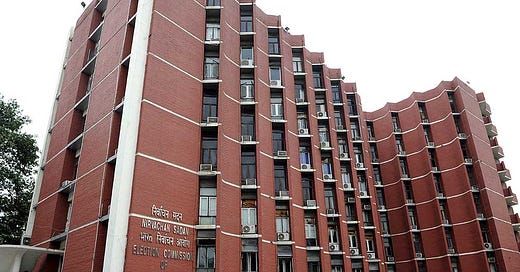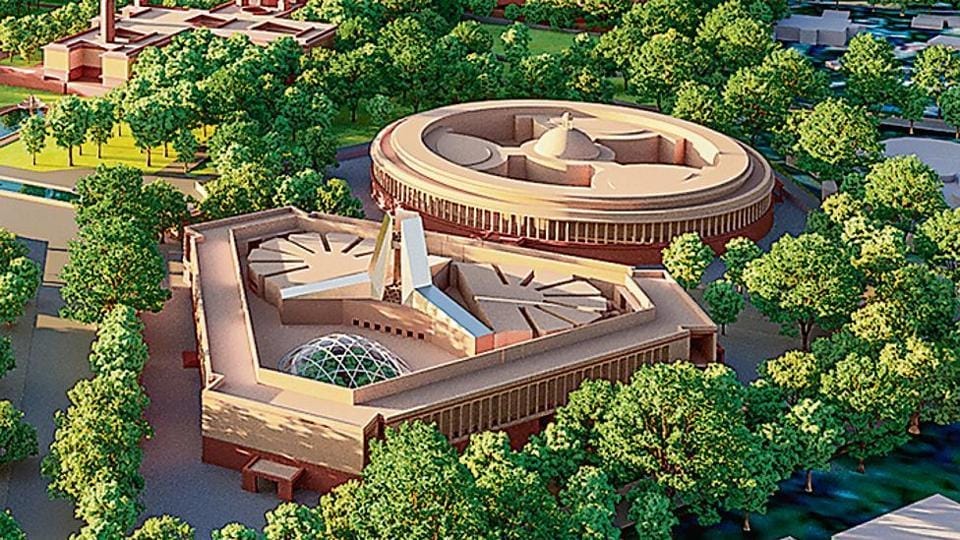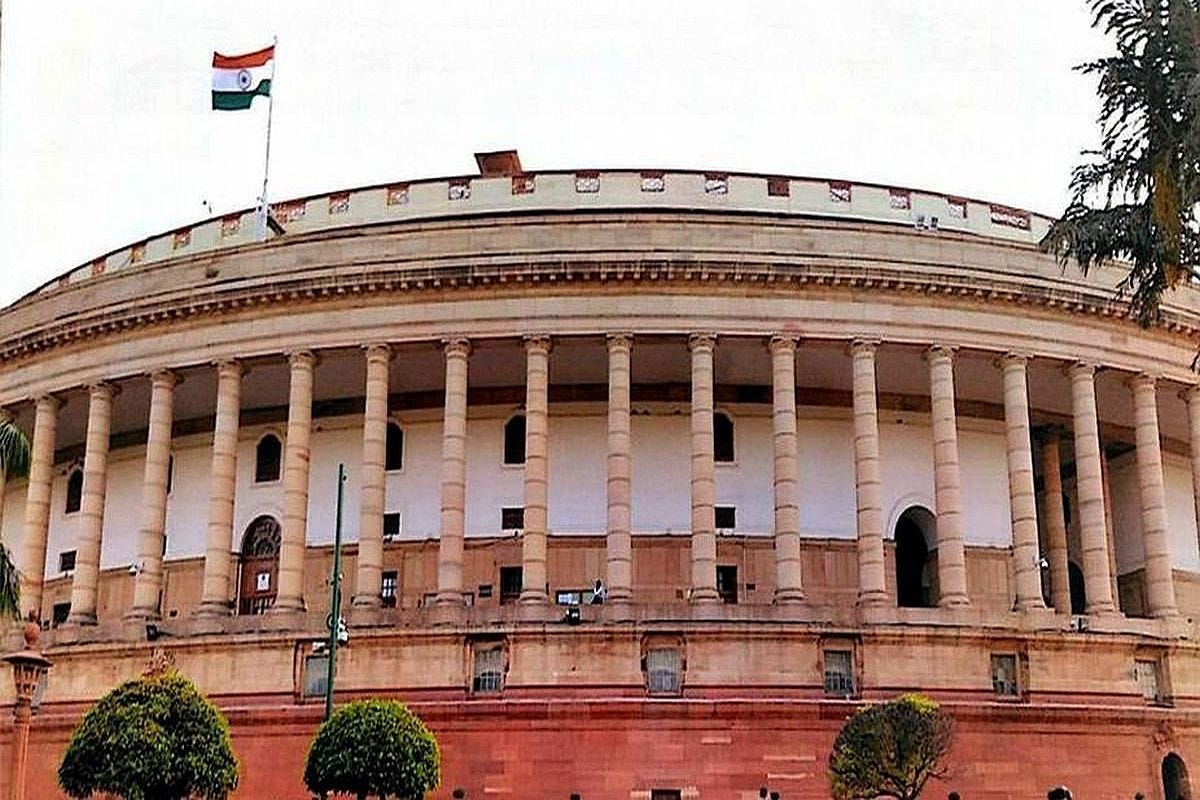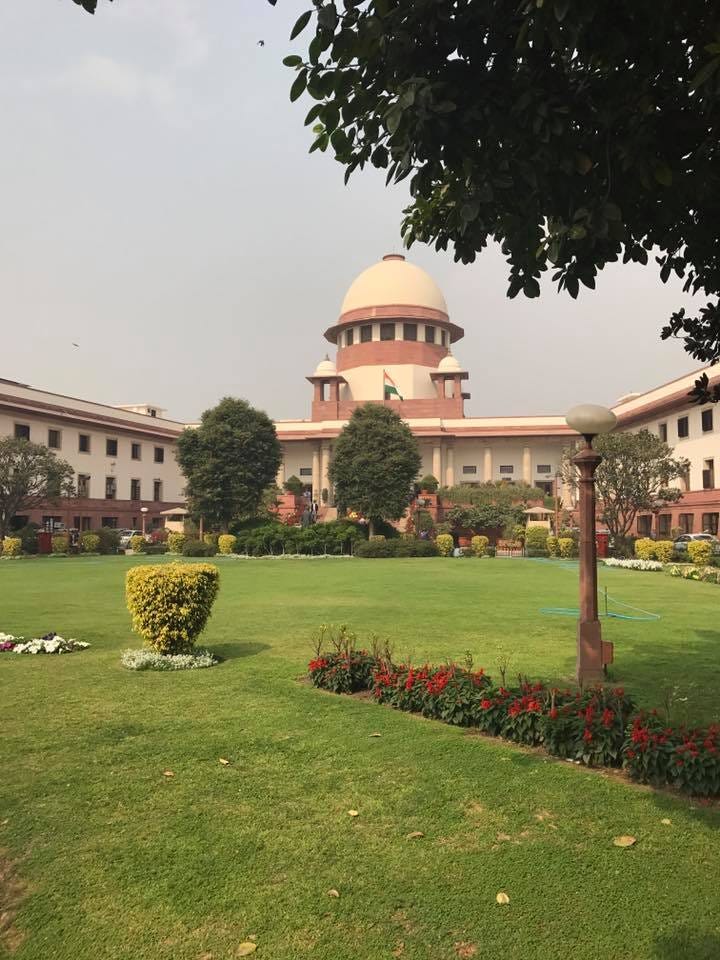Is Election Commission's Citadel being stormed by the Government?
Introduction to the Chief Election Commissioner and Other Election Commissioners Bill, 2023— is the apprehension of the Opposition well-founded.
Background and Legislative Context
On December 12, 2023, the Rajya Sabha passed the Chief Election Commissioner and Other Election Commissioners (Appointment, Conditions of Service and Term of Office) Bill, 2023, with key official amendments. This pivotal legislative action by the Central Government is a direct response to the Supreme Court of India's ruling on March 2, 2023, in the Anoop Baranwal v Union of India case. In this crucial judgment, the Apex Court underscored the constitutional mandate for an independent Election Commission. It unequivocally stated that the appointments of the Chief Election Commissioner (CEC) and Election Commissioners (ECs) should be governed by a distinct legislative and statutory framework, moving away from reliance solely on executive discretion or guidelines.
The Supreme Court's Vision and the Bill's Departure
In the interim period, the Supreme Court established a protocol for appointing the Chief Election Commissioner (CEC) and Election Commissioners (ECs), based on the recommendations of a Selection Committee. According to the Court's directive, this Committee was to consist of the Prime Minister, the Chief Justice of India, and the Leader of the Opposition in the Lok Sabha (or the leader of the largest opposition party in the absence of a recognized Leader of Opposition). Contrary to this framework, the Bill recently passed diverges significantly. It notably omits the involvement of the Chief Justice of the Supreme Court from the selection process. As per the provisions of the new Bill, the Selection Committee will include the Prime Minister, a Union Cabinet Minister nominated by the Prime Minister, and the Leader of the Opposition. This revised composition, leaning heavily towards the ruling Government, has raised concerns regarding its potential influence on the independence of the Election Commission of India.
Further Exploration and Divergent Perspectives
The Bill, while aiming to address the Supreme Court's directives, has introduced modifications that open up debates on the independence and impartiality of the Election Commission. For a more in-depth understanding, readers interested in the detailed legislative aspects can refer to the full 21 sections of the Bill provided in the footnote1. For a concise overview highlighting the key provisions and the varied viewpoints surrounding this legislative process, which is expected to be approved by the Lok Sabha in the current Winter Session, our article offers an objective analysis, presenting the salient points in the subsequent paragraphs.
Salient Features of the Bill
The "Chief Election Commissioner and Other Election Commissioners (Appointment, Conditions of Service and Term of Office) Bill, 2023" (Bill No. LVII‒C of 2023) as passed by the Rajya Sabha on 12 December 2023, focuses on several key aspects concerning the appointment, conditions of service, and terms of office of the Chief Election Commissioner (CEC) and other Election Commissioners. Here's a summary of its main points:
Composition of the Election Commission: The Election Commission will consist of the Chief Election Commissioner and other Election Commissioners as determined by the President. This opens the way for appointment of more than two ECs, without any amendment in the law.
Search Committee for the CEC and ECs: The appointment of the Chief Election Commissioner (CEC) and Election Commissioners is a process initiated by the President of India. Key to this process is a Search Committee, headed by the Law Minister, which is responsible for shortlisting a panel of five potential candidates. This committee plays a crucial role in identifying and proposing eligible individuals for consideration.
The Role of the Selection Committee: Following the Search Committee's recommendations, the Selection Committee takes charge of the final selection. This Committee's composition is significant, including the Prime Minister as the Chairperson, the Leader of the Opposition in the Lok Sabha, and a Union Cabinet Minister nominated by the Prime Minister. In an important provision, the Selection Committee is also empowered to consider candidates outside the names proposed by the Search Committee, thereby broadening the scope of potential appointees.
Qualifications: Appointees must have experience equivalent to the rank of Secretary to the Government of India and possess knowledge and experience in managing and conducting elections. Effectively limits the appointment to retired civil servants, not necessarily IAS officers; senior superannuated officers of other services also become eligible.
Term and Eligibility for Reappointment: The CEC and Election Commissioners will serve a term of six years or until they reach the age of 65, whichever is earlier. They are not eligible for reappointment.
Salary and Benefits: Their salary is equivalent to that of a Supreme Court Judge. They are entitled to benefits like dearness allowance, encashment of leave, and other conditions as applicable to Judges of the Supreme Court.
Resignation and Removal: They can resign anytime by writing to the President. The CEC can be removed like a Supreme Court Judge, while other Election Commissioners can be removed only upon the on the CEC's recommendation. The pre-eminence of the CEC is reiterated.
Pension and Provident Fund: Provisions for pension and the option to subscribe to the General Provident Fund are included.
Protection Clause: The Bill includes a protection clause against legal proceedings— both civil and criminal— for actions undertaken in their official capacity. This provision was included in wake of some FIRs registered against the CEC and ECs, by name, in some states on flimsy grounds, after the elections were over.
Transaction of Business: The Election Commission is authorized to regulate its procedure for transaction of business, which should ideally be based on unanimity or majority in case of differences of opinion. Here, the two ECs can have their say, if they mutually agree, the pre-eminence of the CEC notwithstanding
Power to Remove Difficulties and Legislative Oversight: The Central Government has the authority to remove difficulties arising in implementing the Act. Additionally, every rule and order under this Act must be laid before both Houses of Parliament.
Repeal and Saving: The Bill repeals the Election Commission (Conditions of Service of Election Commissioners and Transaction of Business) Act, 1991, with provisions for saving anything done under the repealed Act.
This Bill signifies a comprehensive approach to structuring the management and functioning of the Election Commission of India, aiming to ensure its effective operation and independence.
Perspectives on the Independence of the Election Commission
Despite concerns raised by several opposition leaders and academicians about the potential erosion of the Election Commission of India's independence and credibility due to the new Bill, there is a counter-argument to be considered. From a constitutional standpoint, the election laws and procedures in India are highly robust. Such is their strength that, even if there were attempts by the Election Commission to bias decisions in favor of the ruling party, the system's integrity is designed to prevent significant alterations in election outcomes.
Personal Insights into the Election Commission's Integrity
Drawing from personal connections, two of the current members of the Election Commission, including the CEC, are my batchmates from the 1984 IAS batch, while the third is a former IAS officer from the Punjab cadre. Knowing them personally for decades, I can confidently vouch for their impartiality and integrity. However, it's important to remember that the effectiveness of the Election Commission isn't solely dependent on individuals but on the robustness of the entire system.
The Election Process: A System-Wide Perspective
My experience in conducting various elections during my service career and having served as a Lok Sabha Election Observer three times, reinforces my belief in the resilience of the election process. The Deputy Commissioners/District Collectors/District Magistrates, many of whom also act as Returning Officers in Lok Sabha constituencies, steer this process, supported by State Civil Service officers. The critical roles in ensuring the integrity of the polling are played by the Presiding and Polling Officers at each booth, which are secured by the police and para-military force personnel.
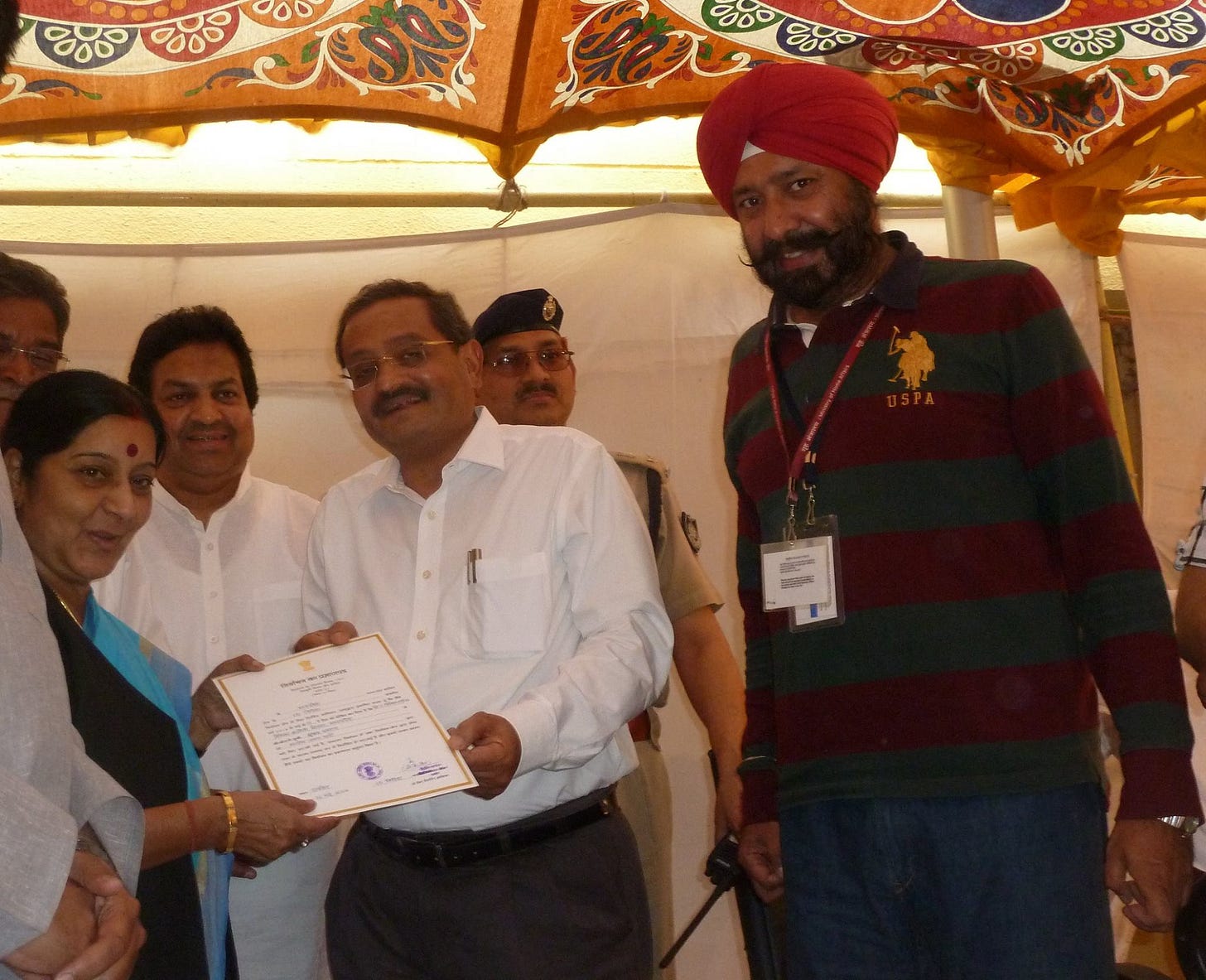
The Role of Vigilance in Elections
The importance of eternal vigilance by candidates, their agents, during electioneering, and especially on polling and counting days, cannot be overstated. The effectiveness of the Election Commission and its machinery in fulfilling their constitutional and statutory duties is significantly enhanced by the active involvement and oversight of citizens and electors. In essence, while the Election Commission strives to fulfill its responsibilities, the proactive participation of the populace ensures the successful functioning of India's democracy, the largest in the world.
Upcoming Insights on EVMs
Regarding the controversies surrounding Electronic Voting Machines (EVMs), I am preparing to share my views on this topic. For an in-depth analysis and discussion, readers are encouraged to stay tuned to "The KBS Chronicle."
https://sansad.in/getFile/BillsTexts/RSBillTexts/PassedRajyaSabha/CRC-CEC-E12132023113818AM.pdf?source=legislation

